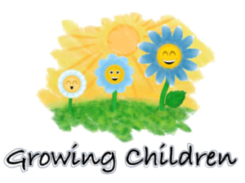Trauma-informed services for
Children & Teenagers
Assessment
An assessment is done on every child or teenager referred to our service. The assessments are tailor-made to the needs of the individual and the family. We specialise in three types of assessments.
The Neurosequential Model focuses on the assessment of potential developmental gaps in children and young people that can be addressed by implementing a therapeutic plan. The Neurosequential Model was developed by Dr. Bruce Perry as a way to organise a child’s history and current functioning.
The goal of this approach is to consider past adversity and relational health and to structure the information gathered by identifying gaps, and strengths in the child and their key relationships. Interventions that best meet the child’s needs, are recommended to help the family, educators, therapists and related professionals.
The process includes gathering all background information available, meeting with the child, parents, caregivers, teachers and other professionals involved with the child. The information gathered is collated and a report is generated which includes visual representation of the child’s strengths and developmental gaps.
A feedback session is scheduled once the assessment is completed.
The CANS was developed by Dr John Lyons and other mental health professionals. The focus of the CANS assessment is on identifying the needs and strengths of the child and the needs and strengths of the systems surrounding the child. A treatment plan is formulated that includes all the role players to ensure a therapeutic web is formed around the child.
The information gathered is used to guide a treatment plan. The child and family are included in the assessment process to ensure that their voices are heard.
The assessment process includes observation/consult with the child, the parents/caregivers, the teacher and/or other professionals.
A feedback session is scheduled once the assessment is completed.
This assessment is completed by using different mediums of play therapy tools and play/sensory preference checklists. The focus of the assessment is to identify unique developmental needs of children, who often express themselves better through play activities than through verbal communication. A play based assessment usually takes place over three to six sessions and then a treatment plan is formed.
Children undergoing or witnessing stressful events, such as a serious illness, domestic violence, abuse, trauma, a family crisis, or an upsetting change in their environment can benefit from a play based assessment, followed by Play Therapy.
A feedback session is scheduled once the assessment is completed.
Behaviour SUpport Plans
Once an assessment is completed a behaviour support plan can be developed and implemented with the child/adolescent, the family and/or the school. The behaviour support plan focuses on implementing strategies and structures into daily activities that support children to “do well” rather than focusing on “what is wrong with the child”.
The plan will consist of activities that take place at regular intervals throughout the day to ensure that the child remains calm and regulated. These activities can be used across environments to ensure that children get the support they need at home, at school and within other social environments.
The plan highlights antecedents and triggers to behaviours that enable parents and caregivers to de-escalate behaviours before they occur and if behaviours do occur, to respond in a trauma-informed, relational way.
Behaviour SUpport Plans
Once an assessment is completed a behaviour support plan can be developed and implemented with the child/adolescent, the family and/or the school. The behaviour support plan focuses on implementing strategies and structures into daily activities that support children to “do well” rather than focusing on “what is wrong with the child”.
The plan will consist of activities that take place at regular intervals throughout the day to ensure that the child remains calm and regulated. These activities can be used across environments to ensure that children get the support they need at home, at school and within other social environments.
The plan highlights antecedents and triggers to behaviours that enable parents and caregivers to de-escalate behaviours before they occur and if behaviours do occur, to respond in a trauma-informed, relational way.
TRAUMA-INFORMED PLAY THERAPY
Play therapy is primarily used to help children ages three to twelve explore their lives and freely express thoughts and feelings through play. Therapeutic play takes place in a safe environment, where play can be directed or non-directed.
Growing Children focuses on trauma-informed Play Therapy which means consideration is given to the impact of trauma on the child’s brain, past adversity, current and past relational health, sensory processing needs and developmental gaps that the child may have. The therapeutic intervention is individualised according to the needs of the child.
Play therapy may benefit the child in a variety of ways such as promoting healing from traumatic events, supporting the expression of emotions, encouraging positive decision-making and problem-solving skills, changing behaviours and learning empathy. Play therapy can help children with academic and social problems, challenging behaviours, anxiety, depression, grief, or anger, as well as those with attention deficit disorders and sensory processing disorder.
TRAUMA-INFORMED PLAY THERAPY
Play therapy is primarily used to help children ages three to twelve explore their lives and freely express thoughts and feelings through play. Therapeutic play takes place in a safe environment, where play can be directed or non-directed.
Growing Children focuses on trauma-informed Play Therapy which means consideration is given to the impact of trauma on the child’s brain, past adversity, current and past relational health, sensory processing needs and developmental gaps that the child may have. The therapeutic intervention is individualised according to the needs of the child.
Play therapy may benefit the child in a variety of ways such as promoting healing from traumatic events, supporting the expression of emotions, encouraging positive decision-making and problem-solving skills, changing behaviours and learning empathy. Play therapy can help children with academic and social problems, challenging behaviours, anxiety, depression, grief, or anger, as well as those with attention deficit disorders and sensory processing disorder.
Private & Confidential
